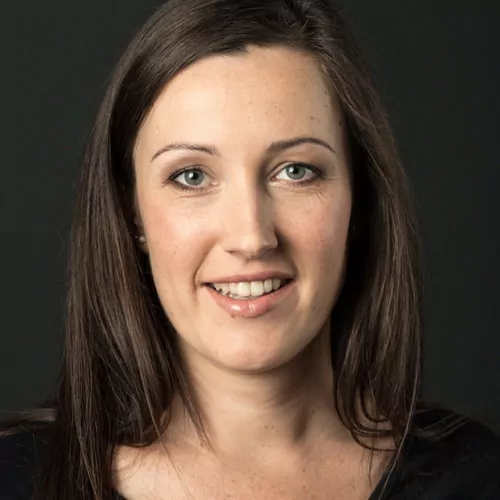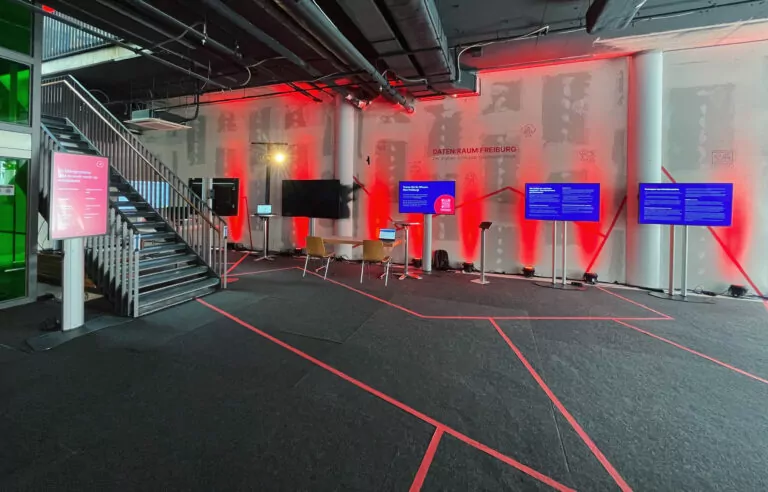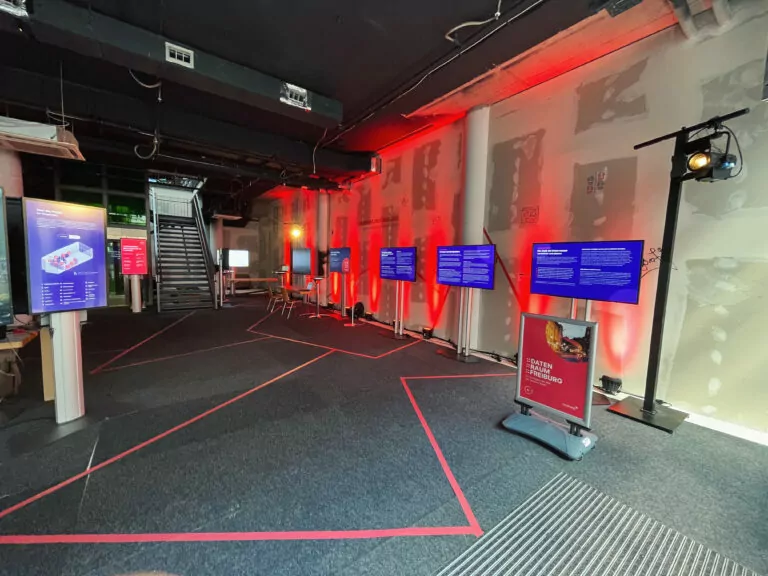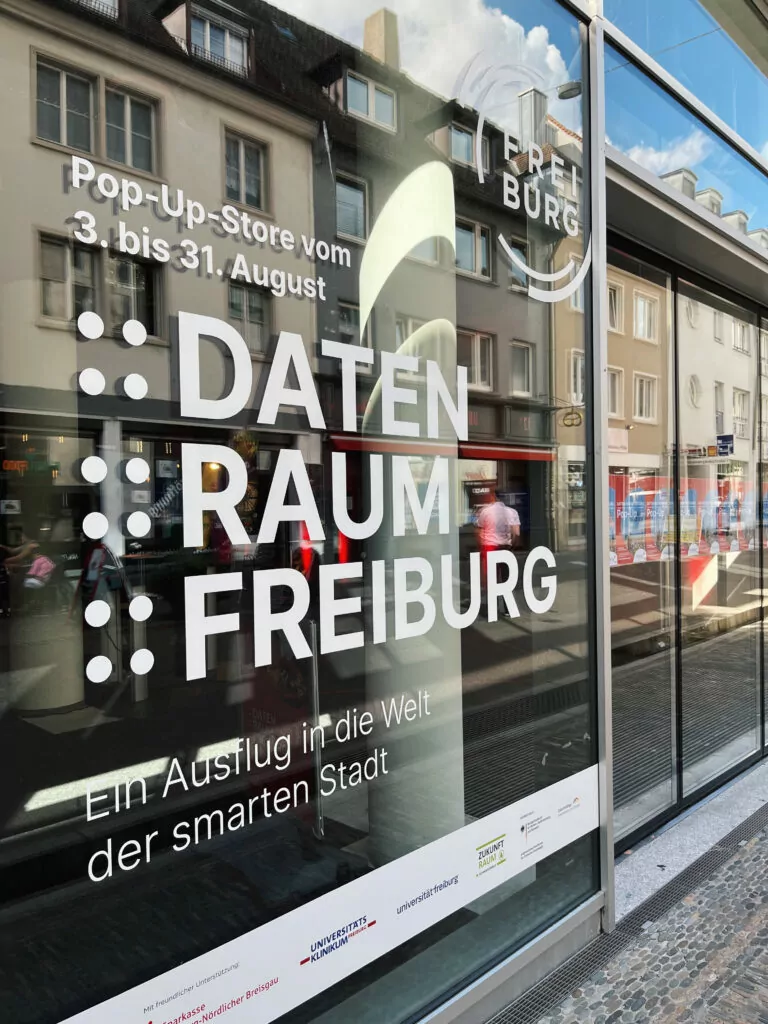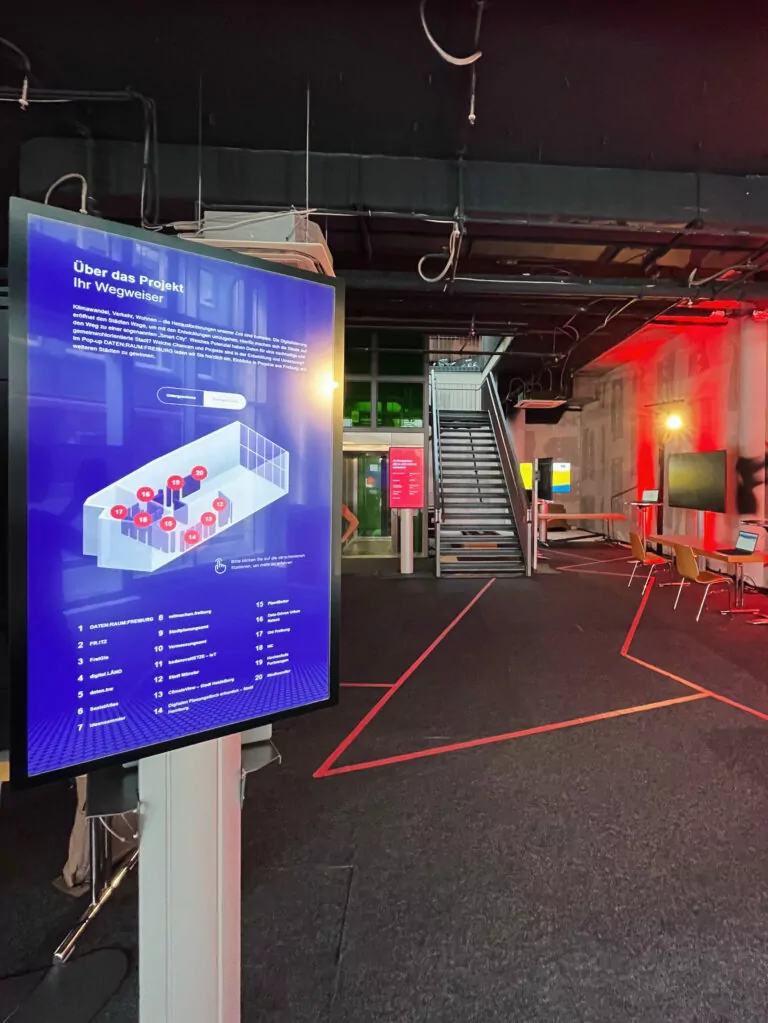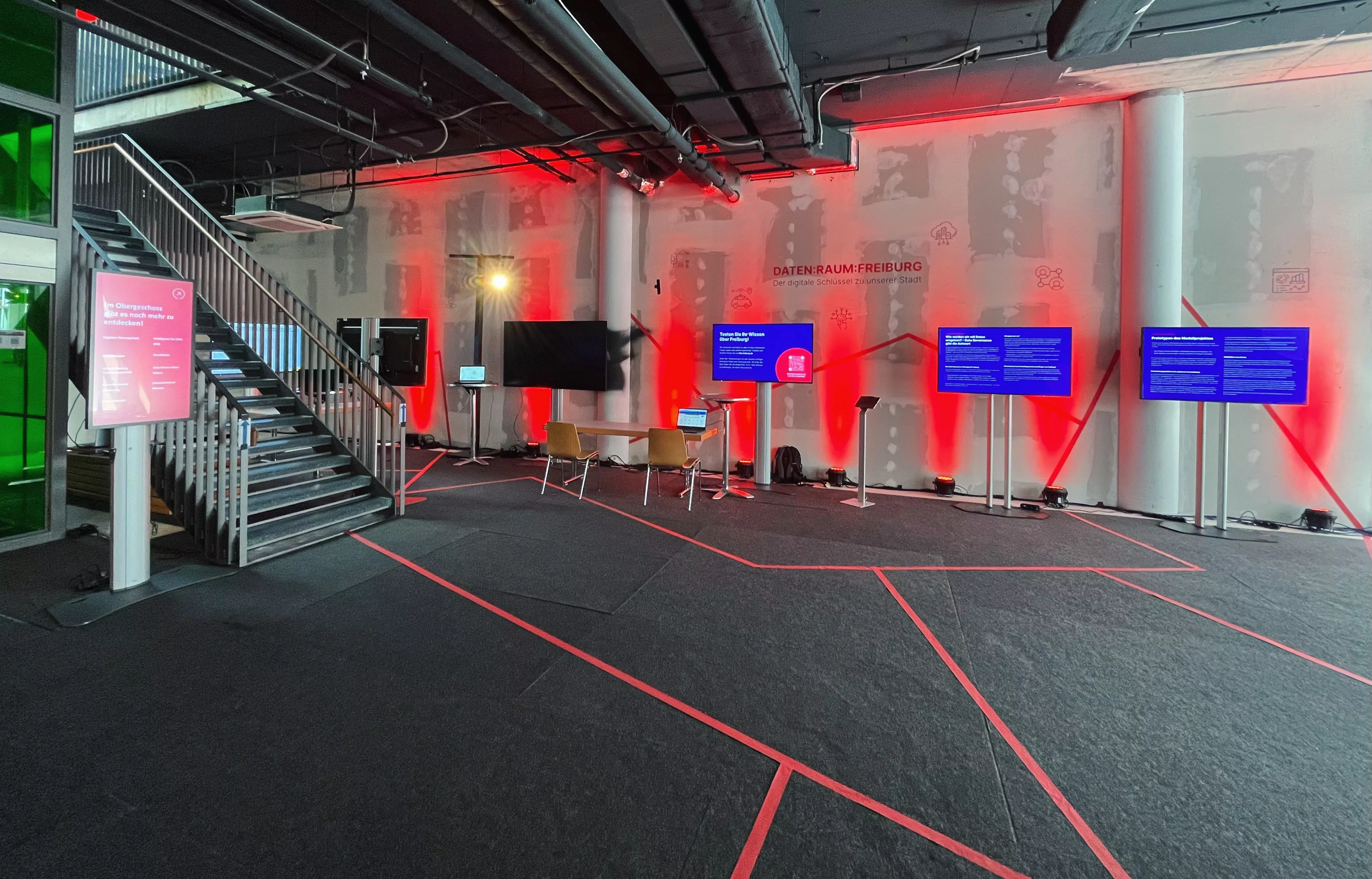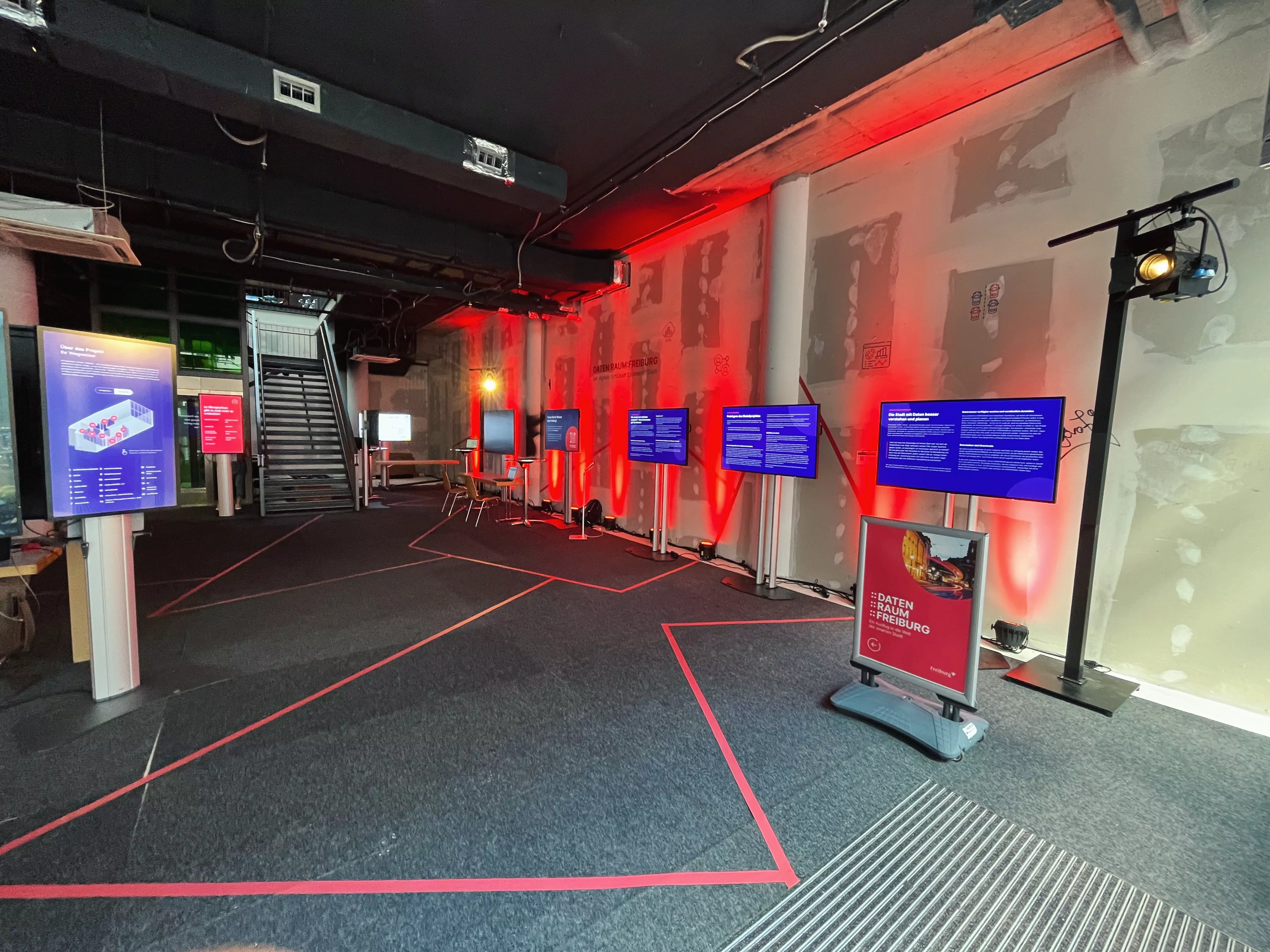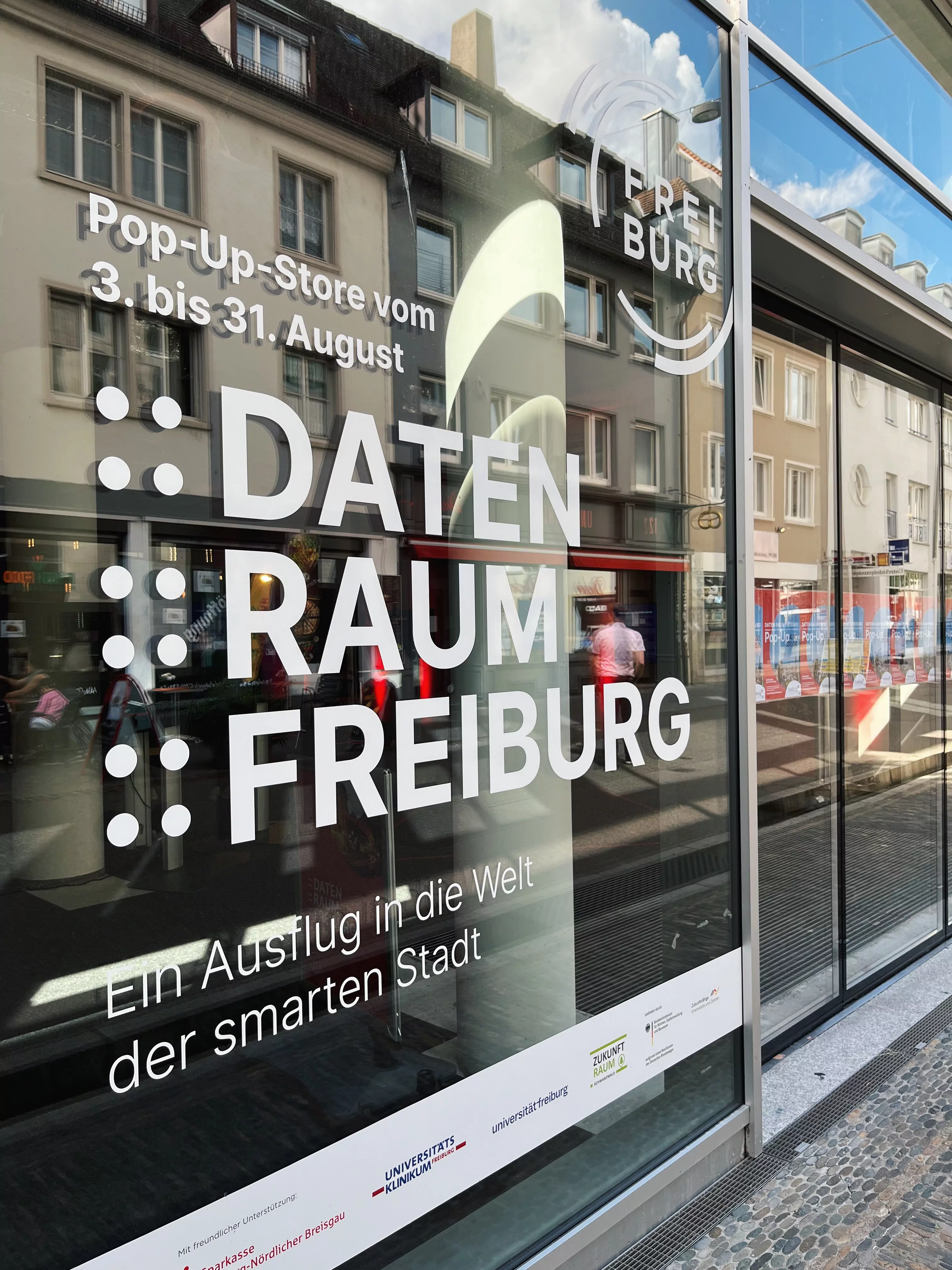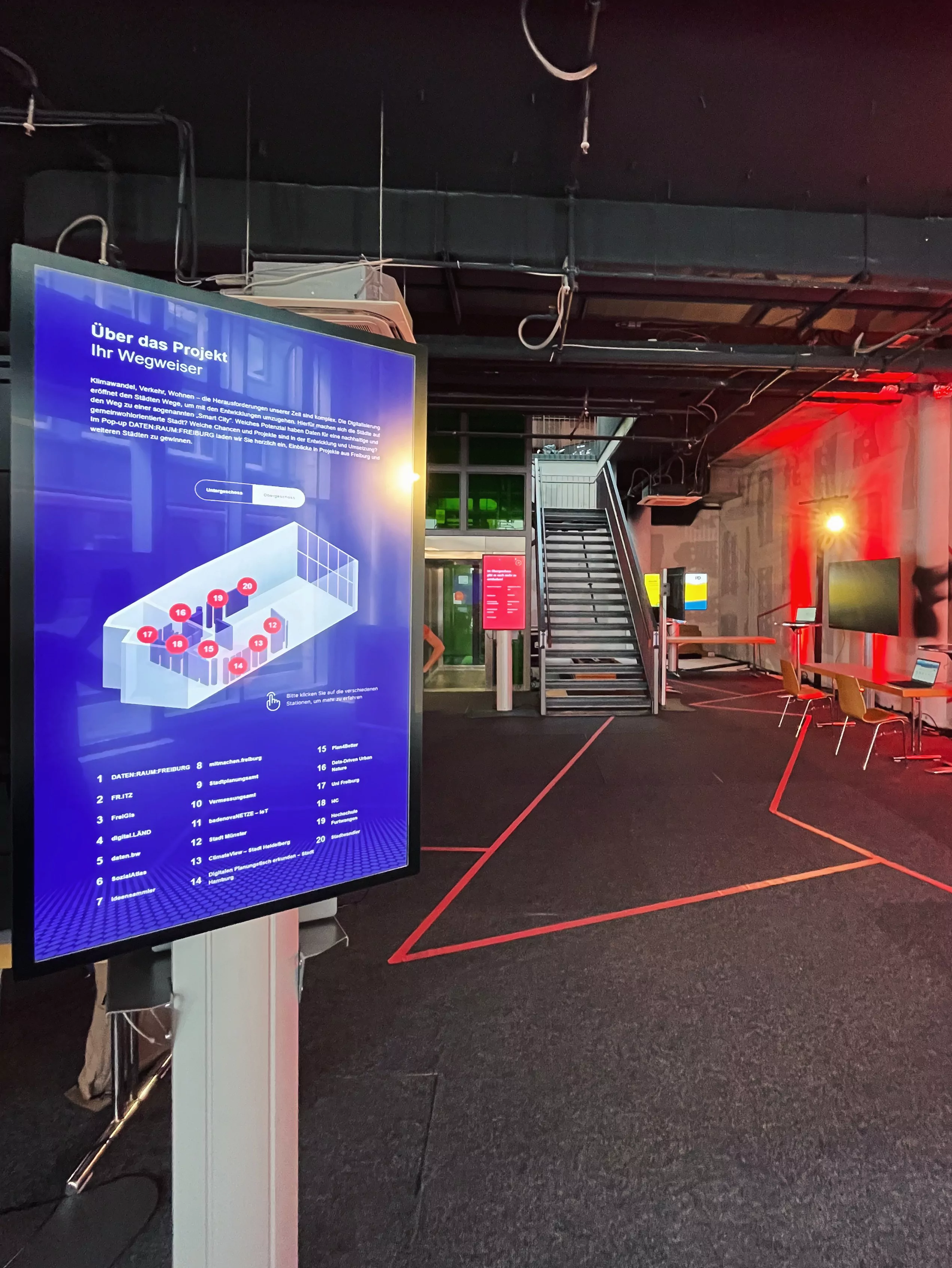The city of Freiburg has been chosen by Germany’s Ministry of Internal Affairs for a subsidy of 8.3 million Euros to become a Smart City. To get this job done, they needed to understand from which already working Smart City features they would benefit most. But from where do cities gather information to make that smart decision?
Out of hundreds of possibilities, Freiburg asked us to sort out successful Smart City features with the most promise. We were keen on being a trustworthy partner for explaining relevant information, but also for guiding through a discussion potentially influencing the life of Freiburg’s citizens in the future.
We started the project with a benchmarking exercise: What projects do other Smart Cities already champion? What data backs up that success and why? We then developed an evaluation model covering different dimensions, ranging from ecological benefits to implementability.
Based on these insights, the task force assessed working ideas and identified the most promising. In creating clarity through an elaborate sorting process of countless possibilities, we empowered the city’s task force to identify two pilot projects in the end.
What projects do other Smart Cities already champion?
The Smart City Pop-Up Store – educating citizens about the power of data
Our consultation didn’t stop there. We brought the Smart City concept and the topic of data governance right into the center of Freiburg with the Daten:Raum:Freiburg project. For this, we developed a store concept and a new brand identity. A video about the city’s social atlas informed people about demographics and socioeconomic data in Freiburg. On site, we showed an image film and provided citizens with an interactive room guide as well as info screens guiding them further through features like Indoor Scanning for which the city gathers data as well. Finally they got access via QR code to a civic participation plattform to take part in the new digital shaping of the city.
For a month we helped Freiburg raise awareness on how it planned to become a Smart City, which projects and initiatives are already happening, and what to expect next regarding the data the city collects in order to make it smarter. The most important part: visitors were able to give feedback and take a stance in shaping the future of the city they live in.
Curious? Let's talk.
